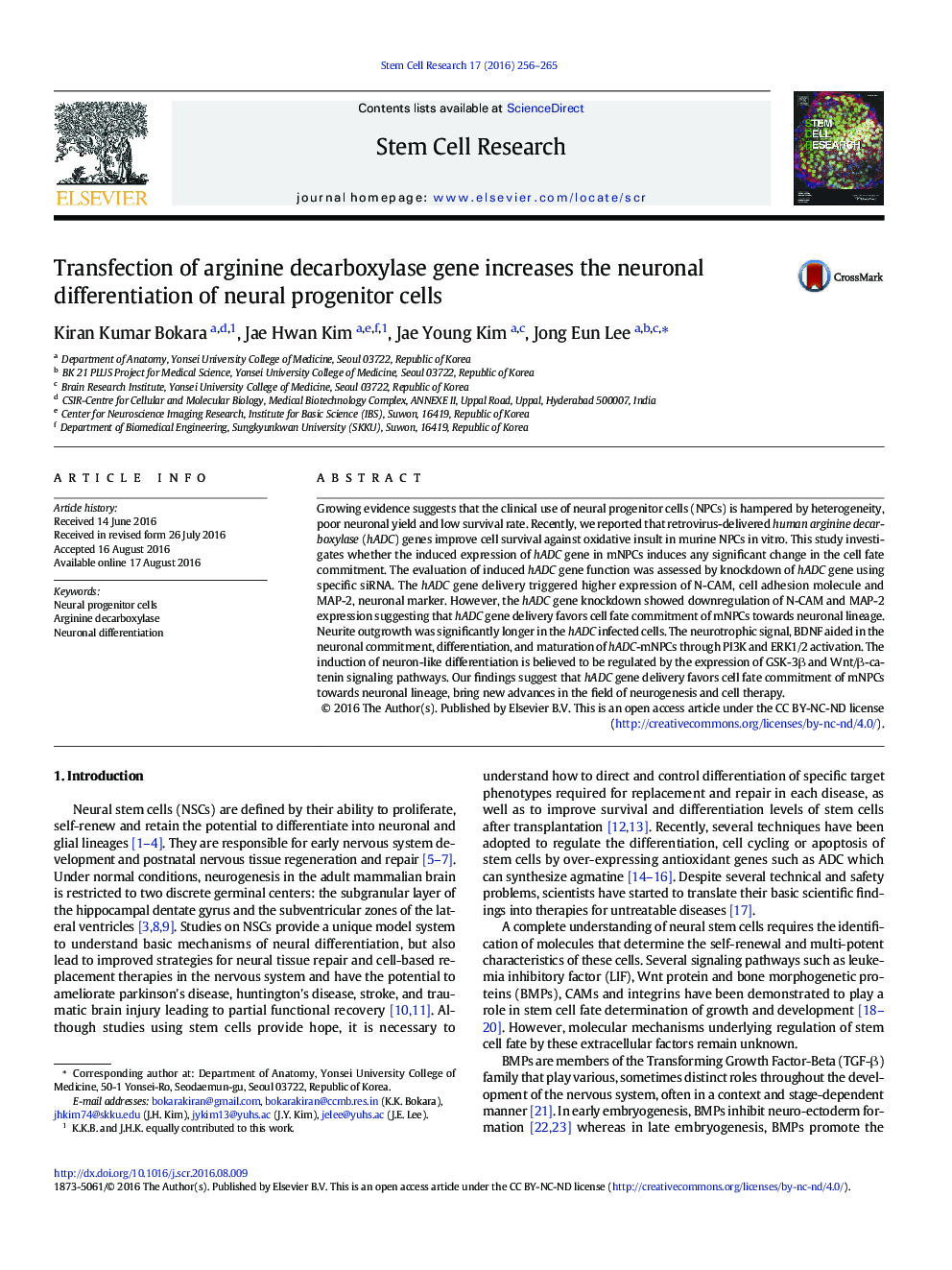| Article ID | Journal | Published Year | Pages | File Type |
|---|---|---|---|---|
| 2093876 | Stem Cell Research | 2016 | 10 Pages |
•Arginine decarboxylase enhances neuronal differentiation of neural progenitor cells.•Arginine decarboxylase triggered higher expression of N-CAM in neural progenitor cells.•Arginine decarboxylase induced neuronal differentiation through PI3K and ERK1/2 activation.
Growing evidence suggests that the clinical use of neural progenitor cells (NPCs) is hampered by heterogeneity, poor neuronal yield and low survival rate. Recently, we reported that retrovirus-delivered human arginine decarboxylase (hADC) genes improve cell survival against oxidative insult in murine NPCs in vitro. This study investigates whether the induced expression of hADC gene in mNPCs induces any significant change in the cell fate commitment. The evaluation of induced hADC gene function was assessed by knockdown of hADC gene using specific siRNA. The hADC gene delivery triggered higher expression of N-CAM, cell adhesion molecule and MAP-2, neuronal marker. However, the hADC gene knockdown showed downregulation of N-CAM and MAP-2 expression suggesting that hADC gene delivery favors cell fate commitment of mNPCs towards neuronal lineage. Neurite outgrowth was significantly longer in the hADC infected cells. The neurotrophic signal, BDNF aided in the neuronal commitment, differentiation, and maturation of hADC-mNPCs through PI3K and ERK1/2 activation. The induction of neuron-like differentiation is believed to be regulated by the expression of GSK-3β and Wnt/β-catenin signaling pathways. Our findings suggest that hADC gene delivery favors cell fate commitment of mNPCs towards neuronal lineage, bring new advances in the field of neurogenesis and cell therapy.
